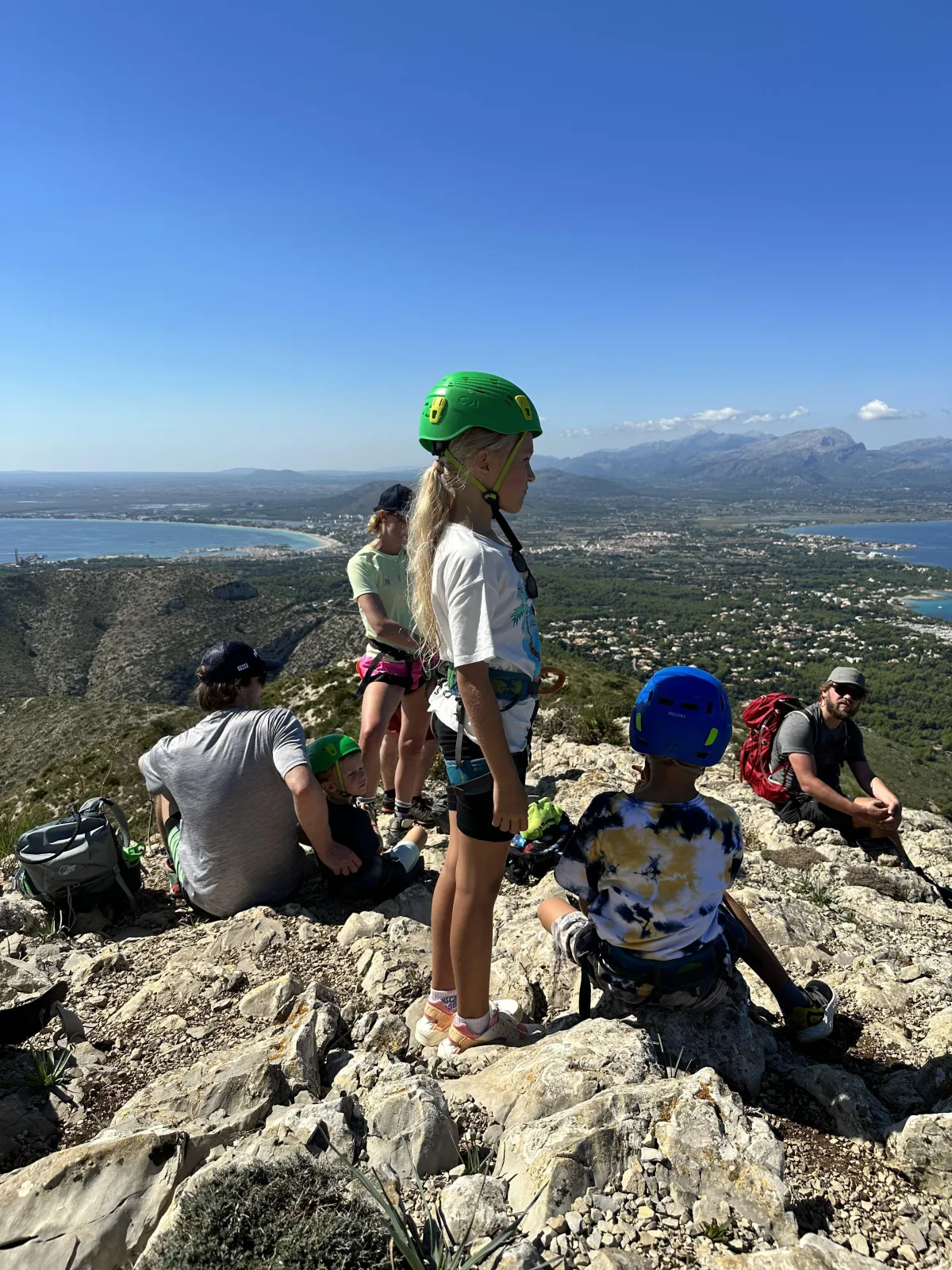See Our Latest Blogs
Beyond Boundaries, Beyond Rescue
Mastering Self Reliance At Sea

Cognitive Grit: Developing an Unbreakable Mindset for High-Risk Environments
Cognitive Grit: Developing an Unbreakable Mindset for High-Risk Environments
In the world of high-stakes adventure, facing down a storm at sea, surviving in sub-zero temperatures, or leading a team through a crisis on a remote mountainside, one thing becomes clear: physical skill is only half the battle. The true test is mental. An unbreakable mindset, what I call “cognitive grit,” is the difference between leaders who rise in the face of chaos and those who crumble. So, how do we cultivate it?
The beauty of cognitive grit lies in its accessibility—it’s something anyone can train, regardless of experience or physical capability. Here’s a deep dive into what cognitive grit is, why it’s crucial for expedition leaders, and practical steps to start building it right now.
Understanding Cognitive Grit
Cognitive grit is the unique mental toughness that lets you stay focused, grounded, and resourceful when faced with high-stakes scenarios. It combines resilience, adaptability, and calm decision-making. Here’s how it works at the neurological level:
Neuroplasticity: The brain’s remarkable ability to reorganize itself is essential for building cognitive grit. Every time you push through a difficult task, you’re reshaping neural pathways to favor resilience and composure.
Prefrontal Cortex Activation: The prefrontal cortex (the part of the brain responsible for rational thought and decision-making) can override the emotional limbic system in moments of stress. Training your brain to keep this area engaged under pressure builds composure.
Stress Hormone Management: Chronic stress weakens cognitive grit, while managed stress strengthens it. Cortisol, adrenaline, and norepinephrine are essential for quick reactions, but too much leads to overwhelm. Learning to handle these hormones is crucial for anyone operating in high-stress environments.
Step 1: Build Resilience through Exposure
Resilience is a muscle, and it strengthens with repeated exposure to discomfort. To build it, put yourself in controlled, high-stress situations where you must adapt quickly. Start small, and push the boundaries as you get more comfortable.
Training Exercises
Cold-Exposure Training - Start with cold showers or brief ice baths. This introduces the body to physical stress in a controlled setting, helping you practice calm breathing and self-regulation.
Simulated High-Stakes Scenarios - Practicing simulated emergency drills or role-playing unexpected events forces you to adapt mentally and prepares you for the real thing.
Physical Endurance - Extended physical challenges (like long hikes or runs) where mental endurance plays a role are perfect practice for cultivating grit.
By gradually pushing the limits, you’re training your brain to handle discomfort without losing clarity.
Step 2: Train Your Prefrontal Cortex for Clear Decision-Making
The best leaders keep a level head in chaos. Training your brain to let the prefrontal cortex stay in charge is key.
Techniques
Mindful Breathing: Use deep, controlled breathing to calm your mind in moments of stress. Slow, intentional breaths activate the parasympathetic nervous system, helping your mind stay clear.
Visualization: Picture yourself handling a high-stakes scenario calmly and effectively. Visualization has been shown to improve actual performance by creating neural connections that resemble real-life experiences.
Delayed Response: In practice scenarios, give yourself a moment before reacting. This teaches your brain to process information instead of jumping to automatic, often fear-driven responses.
Step 3: Adaptability - Think Outside the Box, Stay Open to Change
Adaptability is at the core of cognitive grit. Situations rarely go as planned, so your ability to flex with changing conditions is vital.
Adaptability Exercises
Mind Games and Puzzles: Engage in activities that require rapid problem-solving and adaptability, like chess, rock climbing, or mental puzzles under a time limit.
Failure-Based Learning: Set up challenges where “failure” is highly likely—like completing a tough trail in a tight timeframe or navigating a challenging obstacle course. Use these experiences to normalize mistakes and pivot quickly without frustration.
Decision Swaps: In a safe environment, force yourself to make quick decisions based on changing circumstances, then practice switching plans mid-action. Think of it as strength training for your flexibility.
Step 4: Hone Emotional Control in Intense Situations
An unbreakable mind is one that knows how to handle a flood of emotions without being swept away. The goal isn’t to ignore emotions, but to process and use them to your advantage.
Techniques
Cognitive Reappraisal: This technique involves changing the way you view a situation. Instead of labeling a moment as “stressful” or “dangerous,” try to see it as an opportunity to test your limits.
Self-Talk: Adopt an encouraging internal dialogue. “I can handle this” and “I’ve trained for this moment” can turn self-doubt into motivation.
Decompression Exercises: In high-stakes situations, take brief pauses to ground yourself. This can be a quick 10-second breathing reset, squeezing a stress ball, or even stretching to maintain calm.
Step 5: Reflection and Growth - Turning Experience into Mastery
To truly internalize cognitive grit, take time after each expedition or high-stakes scenario to reflect on what you learned, what you did well, and where you can improve.
Reflection Techniques
Post-Mission Debriefs: After every expedition, conduct a self-assessment. What went right? What would you do differently? Document these insights, and use them to improve in future scenarios.
Journaling: Keep a journal focused on moments of cognitive grit. This could be as simple as “Today, I stayed calm when…” or “Today, I pushed through a moment of doubt.”
Seek Feedback: If you’re part of a team, ask for feedback from fellow adventurers or colleagues on your mental performance. They may see strengths and areas for growth that you missed.
The Adventure Ready Mindset
Cognitive grit is more than just a mindset—it’s a skill that becomes your safety net, your edge, and your secret weapon. Building an unbreakable mind is about taking deliberate steps to train your brain for resilience, focus, and adaptability, so that you’re always ready to lead when others falter.
In the unpredictable world of wilderness and adventure, cognitive grit can be the difference between making it through unscathed or unraveling in chaos. Train your mind like you train your body, and watch as it turns you into the ultimate adventure-ready leader, prepared for any challenge, crisis, or unknown territory that comes your way.
Sail Safely with Expert Medical Training
Resilience & Psychological First Aid For Yachts

Resilience First Aid (RFA) is a proactive approach to mental health, designed to equip yacht crew with the skills to prevent burnout, manage stress, and strengthen mental resilience.
Psychological First Aid (PFA) is an
immediate, compassionate response to mental distress after a crisis,
support each other emotionally, reduce trauma impact, and promote recovery
after major incidents.
Medical First Aid & Planning for Yachts

This course is designed to equip yacht owners & crew with essential first aid skills and the knowledge to set up a well-stocked and effective medical kit. Whether you're preparing for remote cruising or need to update your onboard medical resources, this course ensures you’re ready for any medical emergency.
Yachts operate in remote locations, often far from immediate medical help.
Adventure Preparation for Remote Environments

When you venture into remote environments preparation is everything. The Adventure Ready Program equips leaders, yacht crew, expedition teams, and outdoor professionals with the medical skills, resilience training, and leadership strategies
needed to handle emergencies, adapt under pressure, and thrive in extreme environments.
Be Prepared, Stay Safe & Protect Your Crew
© The Yacht Medic - All Rights Reserved,
Photography & Media by Oli Riley Photography

info@the-yacht-medic.com
+34610120242
Palam de Mallorca, Spain
